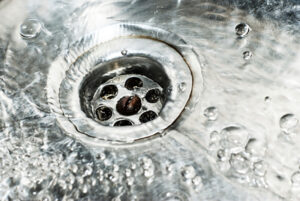
FOGs—Fats, Oils, and Grease—are the enemy when it comes to plumbing. These substances create serious and costly problems when they go down your drains.
In the world of plumbing, few things strike fear into the hearts of homeowners and professionals quite like FOGs. FOGs, or Fats, Oils, and Greases, might seem harmless when they go down the drain, but they are a persistent and costly problem for plumbing systems everywhere. FOGs are a nightmare for plumbing, and it’s crucial to take preventative measures to keep them at bay.
What are FOGs?
Before we dive into why FOGs are problematic for plumbing, let’s first understand what they are. FOGs are a common byproduct of cooking and food preparation. They include substances like cooking oil, butter, lard, and the grease left on plates and cookware after a meal. When these substances are washed down the kitchen sink, they may seem to disappear, but that’s where the trouble begins.
The Perils of FOG Buildup
Clogging Drains and Pipes
One of the most immediate and obvious problems with FOGs is their ability to clog drains and pipes. When FOGs are poured down the sink, they are often in a liquid state, but as they cool and travel further along the plumbing system, they solidify and adhere to the walls of pipes. Over time, this buildup narrows the pipes, leading to restricted water flow and eventually complete blockages. The result is slow drainage or, worse, sewage backups into your home.
Increased Maintenance Costs
Plumbing maintenance is an inevitable part of homeownership, but FOG-related issues can significantly increase those costs. Clearing clogged drains and pipes requires the expertise of a plumber and specialized equipment. Depending on the severity of the blockage, the cost can range from a few hundred to several thousand dollars. Regular FOG-related maintenance can quickly become a financial burden.
Environmental Impact
The problems caused by FOGs extend beyond the confines of our homes. When FOGs enter the sewer system, they can accumulate in municipal pipes, leading to major blockages. This can result in sewage overflows into rivers and oceans, causing environmental damage and health hazards. Municipalities spend millions each year to clean up these messes, and ultimately, taxpayers foot the bill.
Health Risks
FOGs can also attract pests, including rats and cockroaches, which are attracted to the grease and food residue stuck in drains. These pests can carry diseases and pose health risks to homeowners. Furthermore, the foul odors produced by decomposing FOGs in plumbing systems can make living conditions unpleasant and potentially harmful to respiratory health.
Preventing FOG-Related Plumbing Problems
Given the numerous problems associated with FOGs in plumbing, prevention is key. Here are some steps you can take to minimize the impact of FOGs on your plumbing system:
- Dispose of FOGs Properly: Instead of pouring FOGs down the sink, let them cool and solidify in a container. Once hardened, dispose of them in the trash. Alternatively, consider recycling cooking oil at a local recycling center.
- Use Sink Strainers: Placing sink strainers over your kitchen sink drains can help catch food particles and small bits of FOGs, preventing them from entering the plumbing system.
- Regular Maintenance: Schedule regular plumbing maintenance to inspect and clean your pipes, preventing FOG buildup before it becomes a severe issue.
- Educate and Raise Awareness: Inform your family and friends about the dangers of FOGs in plumbing. The more people know about this problem, the better equipped they’ll be to prevent it.
Call Mahon Plumbing Today
If you still have more questions regarding your plumbing, we here at Mahon Plumbing are here to help. We have been serving the wider Baltimore area since 1994, so we have 25 years of experience to back up our fantastic service! Call us at our Baltimore location at 410-766-8566 or our Pasadena location at 410-636-7944. Be sure to keep up with us on social media by following us on Facebook or Twitter.
